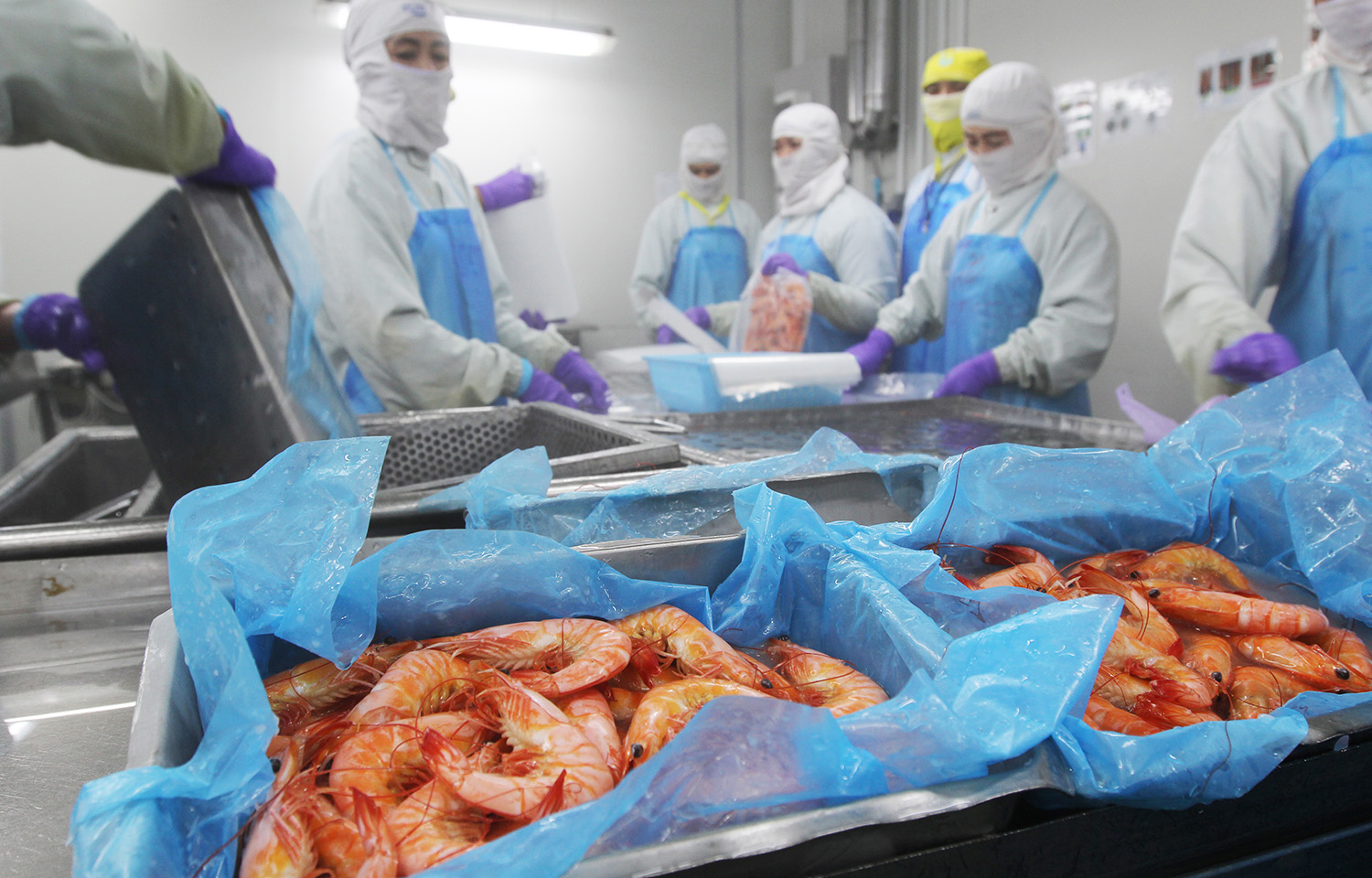A group of federal lawmakers from Southern U.S. states has introduced legislation that would ban federal funding from going toward shrimp farming, foreign shrimp exports to the U.S., or shrimp processing via international monetary institutions in an attempt to protect domestic shrimpers.
“Louisiana’s shrimping industry is a way of life for many Louisianans and a significant economic driver for our state,” U.S. Rep. Clay Higgins (R-Louisiana) said in a statement. “Due to the dumping of imported products from overseas, the shrimping industry is grappling with some of the lowest prices in recent memory. The taxpayer’s hard-earned treasure shouldn’t go toward building competition against the American people. By cutting federal funding to international institutions that contribute to foreign shrimp farming, we are giving domestic shrimpers a level playing field and a seat at the table. We must continue to pursue solutions that help protect Gulf [of Mexico] seafood and prioritize domestic production.”
Along with Higgins, the Save Our Shrimpers Act of 2024 was introduced by U.S. Rep. Troy Nehls (R-Texas), U.S. Rep. Vicente Gonzalez (D-Texas), U.S. Rep. Garret Graves (R-Louisiana), U.S. Rep. Mike Ezell (R-Missouri), U.S. Rep. Nancy Mace (R-South Carolina), and U.S. Rep. Barry Moore (R-Alabama).
This follows concerns voiced by the U.S. shrimp industry that subsidized foreign imports undercut domestic shrimpers. In 2023, the Southern Shrimp Alliance (SSA) released a report documenting how billions of dollars in support delivered by global institutions – including the World Bank and the International Monetary Fund – are being used to augment foreign aquaculture capacity.
Federal law directs American representatives at international monetary institutions to vote against financial assitance that supports exports with the potential to harm U.S. producers, but the lawmakers supporting the legislation claim there are only limited circumstances where the government has complied with the law. The Save Our Shrimpers Act would ban federal funds from being made available to international financial institutions for projects relating to shrimp farming, shrimp processing, or the export of shrimp in any foreign country to the United States.
“Our domestic shrimping industry is struggling due to an influx of foreign shrimp flooding our markets, often funded by U.S. taxpayer dollars,” Mace said. “This bill sets clear conditions on funding to international institutions, preventing support for foreign shrimp farming. This protects American jobs and coastal economies ... ensuring our industry can thrive.”
The bill also would require a government watchdog to investigate the matter and an annual report to Congress outlining whether U.S. government representatives at international financial institutions are complying with current U.S. law.
The SSA has thrown its support behind the new legislation, as has the Texas Shrimp Association, the South Carolina Shrimper’s Association, the GA Commercial Fisherman’s Association, the North Carolina Fisheries Association, the US Shrimp Coalition, the Louisiana Shrimp Association, the Alabama Commercial Fishermen’s Association, and the Port of Palacios, Texas.
“American shrimp boats aren’t tied up at the docks due to free market principles. Redirecting taxpayer dollars to fund our competition through multilateral banks is sinking our industry,” SSA Executive Director John Williams said. “We deeply appreciate the leadership of Representative Nehls and his staff, the bill’s co-leaders, and the supporting co-sponsors of the Save Our Shrimpers Act for demanding that federal funds no longer be used to injure American commercial fishermen.”
The legislation comes shortly after a series of investigations reported labor abuses, unsanitary conditions, and the use of antibiotics in the Indian shrimp sector. In response, SSA asked the U.S. Department of Labor to add Indian shrimp to its 2024 List of Goods Produced by Child Labor or Forced Labor.
This is also part of a general push from U.S. shrimp sector calling for federal action to deter imports and provide more support for domestic shrimpers. Local and state governments have issued emergency declarations in an effort to pressure the federal government to take action and provide financial support to the domestic industry. At the state level, lawmakers in Alabama are considering a bill that would require restaurants and grocery store delis to show where seafood products originated, mirroring a similar law already passed in Louisiana.
In Congress, legislators have introduced several bills to address the industry’s concerns.
In October 2023, prior to the latest series of reports, U.S. Senator Bill Cassidy (R-Louisiana) introduced legislation that would neutralize subsidies the government of India gives to its shrimp sector by raising tariffs on Indian shrimp imports. Cassidy and U.S. Senator Tammy Baldwin (D-Wisconsin) also introduced the Resilient Communities Act, which would direct frunds from duties on imported shrimp to be distributed to communities harmed by those imports.
“Louisiana shrimpers have a great story to tell. Their shrimp is fresher, cleaner, and tastes better,” Cassidy said. “This is an important step toward protecting the families who rely on Louisiana’s seafood industry and ensuring that their communities prosper no matter how much China and India try to dump into U.S. markets.”








